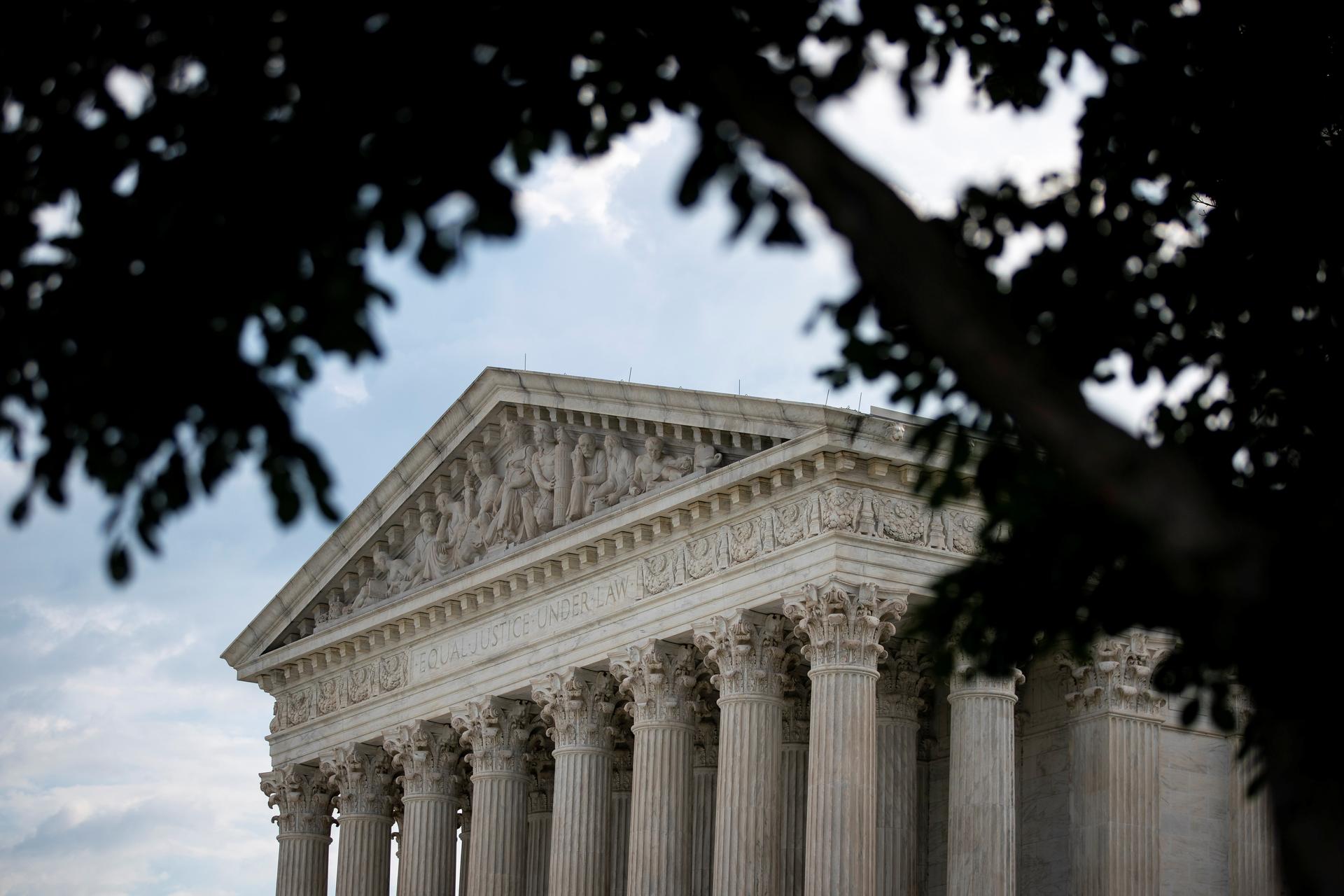The Supreme Court ruled Thursday that immigrants denied asylum under streamlined proceedings cannot contest those decisions in court.
The case involved a Sri Lankan farmer named Vijayakumar Thuraissigiam, a member of the Tamil ethnic minority, who said he feared persecution. The justices ruled in favor of the Trump administration in its appeal of a lower court ruling that Thuraissigiam had a right to have a judge review the government’s handling of his asylum bid.
The ruling, written by conservative Justice Samuel Alito, found that limiting judicial scrutiny in this rapid deportation case, known as expedited removal, did not violate key safeguards of individual liberty in the US Constitution. It is likely to impact thousands of potential asylum-seekers, who already face long odds in gaining asylum.
Related: Trump proposes harsh asylum rules disqualifying many applicants
Sarah Pierce, a policy analyst with the Migration Policy Institute, spoke with The World’s host Marco Werman about the implications of the ruling.
Marco Werman: Explain what the Supreme Court actually upheld today and start, if you would, with these expedited hearings for asylum-seekers. What do they look like and how are they being used?
Sarah Pierce: When asylum-seekers come to the United States, whether that be to a port of entry or crossing the border illegally, as the Sri Lankan national did here, they’re subject expedited removal proceedings, under which they’re deported from the country without seeing a judge within at most a few weeks. While they’re in those proceedings, they can claim a fear of returning to their home countries. And that triggers a preliminary asylum interview, also called a credible fear interview. The Sri Lankan national here had that credible fear interview and was denied. And he seeks to have a federal court review that denial. But there’s a statute, a law, in place saying that federal courts could not review these decisions. And so he was contesting the constitutionality of that law, which the Supreme Court then upheld today.
To contest the constitutionality, he was basically bringing in a habeas corpus petition. How unusual is that at asylum proceedings?
It is unusual. A lot of these asylum-seekers don’t yet have attorneys. They have not been in the United States a long time and they don’t have the resources to go through with this full federal court review. But it definitely happens whether they’re trying to get the facts of their case reviewed or if they think that they were denied on a legal error.
Related: US and Mexico are blocking kids from asking for asylum because of coronavirus
What was the rationale for this decision, then, at the Supreme Court today?
The Supreme Court ultimately found that foreign nationals like this one, who are detained shortly after entering the country illegally, they don’t enjoy as many constitutional protections as other individuals in the United States. This is a pretty big hit for foreign nationals. They’re saying that Congress and the executive, the political branches of our government, have the power to determine the rights that these individuals enjoy and they can’t depend on the Constitution. So the fear is that this opinion could be expanded to take away other rights for this group of individuals.
Generally, how hard is it to be granted asylum in the US right now? Has it gotten more difficult because of the pandemic?
During the pandemic, it’s essentially impossible if you’re talking about asylum at the southern border because of the order that came down from the CDC. Anyone approaching the southern border is being expelled from the country rather quickly. The only individuals who are able to seek refuge in the United States during this kind of black hole period of the pandemic are those who proactively state to US Border Patrol agents that they have a fear of torture in their home country if they fear persecution or anything else, they still will be expelled as quickly as possible.
This interview has been condensed and edited. Reuters contributed reporting.
